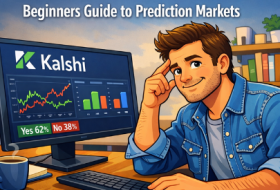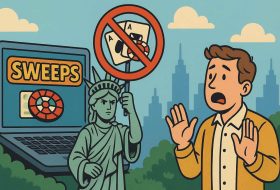
When the World Series of Poker launches one of its biggest events ever on Friday, it’ll be with a new rule in place to address the controversy surrounding the end of the WSOP Main Event this past July.
The poker tournament organizers released rules for its Paradise Tournament at the Atlantis Paradise Island resort in The Bahamas, taking place Dec. 6-19. The tournament offers 15 bracelets, including a Super Main Event with a $25,000 buy-in and a $50 million guaranteed prize pool dubbed the biggest in poker history.
The rule in question, 63b, deals with electronic assistance and coaching, and reads in full:
Players and spectators are not allowed to use charts, apps, or any other form of electronic assistance in the tournament room[…] Spectators are also prohibited from providing live assistance or coaching[…] Non-players on the rail must adhere to the WSOP Terms & Conditions, including no viewing of live streams on an electronic device.
Players who directly violate the electronic assistance rule can be disqualified, while those receiving help from the rail may be penalized.
New rule build off existing device policy
A related and longer-standing rule in the same section bans all electronic devices once the tournament reaches three tables. Players can have electronic devices prior to that point in a tournament. That includes iPods, MP3 players and other music playing or noise-reduction headsets. However, they cannot be used “to collude or cheat in any way,” including for the same sort of computer-assisted strategies banned by rule 63b.
In July, Jonathan Tamayo won the WSOP No-limit Hold’em World Championship in Las Vegas, winning $10 million in a $10,000 buy-in tournament. PokerGO’s stream of the event showed Tamayo consulting with others during the final table, including 2015 Main Event champion Joe McKeehen and four-time WSOP event winner Dominik Nitsche. Photos and videos of their discussion were circulated widely on social media, sparking controversy. Many assumed, based on what they were seeing, that some sort of cheating was going on.
Tamayo himself admitted to the Las Vegas Review Journal that McKeehen and Nitsche were vital to his victory, telling a reporter after his big win:
Joe and Dom actually helped. If they weren’t here, I likely do not win this tournament. I might be out eighth. I might be out seventh. I might win this tournament, but a whole other bunch of good things would actually have to happen for that to happen. The way it went, it likely wasn’t going to happen like that.
At the time, there was nothing wrong with what Tamayo did. There was no rule against conferring with players on the rail. Nistche, not being a participant himself, was within his rights to have a laptop running whatever software he wanted. Still, the optics were bad enough to result in a change in WSOP’s policies.
Additional forms of collusion addressed in new rule
In addition to the new rule addition, Rule 39 includes a broad definition of collusion that includes “sharing card information with another Participant; sending or receiving signals from or to another Participant; the use of electronic communication with the intent to facilitate collusion; and any other act that the Host Property deems inappropriate.”
The Triton Poker and GGPoker YouTube channels will stream the events, and players can register with the new WSOP+ mobile app. In October, GGPoker’s parent company, NSUS Group, completed its acquisition of WSOP.





